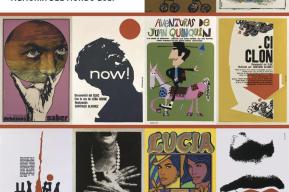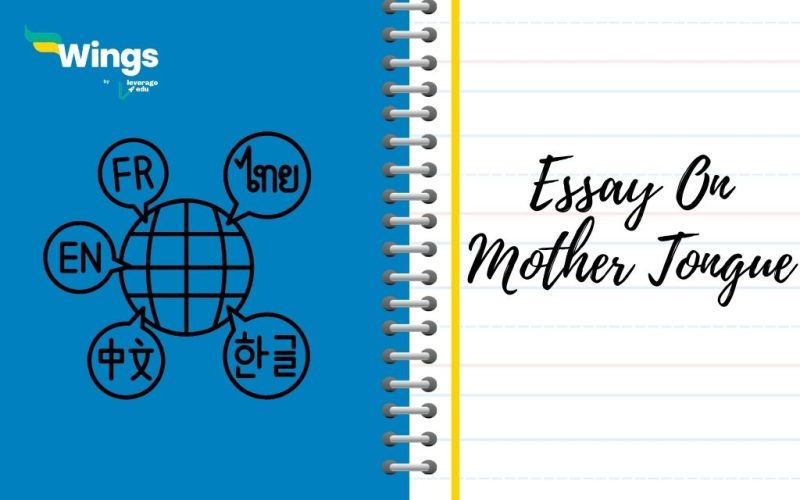- Skip to main content
- Skip to secondary menu
- Skip to primary sidebar
- Skip to footer
A Plus Topper
Improve your Grades

Mother Tongue Essay | Essay on Mother Tongue for Students and Children in English
February 7, 2024 by Prasanna
Mother Tongue Essay: The first naturally acquired by humans is their mother tongue. The mother tongue is associated with the language that a child’s parent use to communicate with them, or the common language of the place a person is born and brought up in is called the native tongue.
You can also find more Essay Writing articles on events, persons, sports, technology and many more.
Long and Short Essays on Mother Tongue for Students and Kids in English
We are providing students with essay samples on a long essay of 500 words and a short essay of 150 words on the topic ‘Mother Tongue’ for reference.
Long Essay on Mother Tongue 500 Words in English
Long Essay on Mother Tongue is usually given to classes 7, 8, 9, and 10.
To suffice human’s social need for more effective communication the language was created. The extremely complex or versatile code, i.e. language, is used to express our thoughts and experiences to other people. This makes language a natural phenomenon that is learnt by a human at an early age for the desire to express themselves to others.
The mother tongue or the native language is an essential aspect in one’s upbringing as it shapes the way they perceive the world and the way one expresses themselves to others. Babies tend to imitate what they see or hear. Infants are fast learners as they acquire their mother tongue by imitating their parents. It is easier for children to learn languages in their growing years than in comparison to adults learning a new language.
Having a strong grip on one’s mother tongue also helps in creating a strong foundation for learning additional languages. Children are capable of learning languages other than their native tongue while they are young by transferring the different structure of a language to other languages. If a child learns the grammar of their mother tongue well, then they will be able to guess the meaning of the words in different languages easily.
Since people from different regions have varying mother tongues, that is why many institutions and parents teach a second language to children so that they can communicate with more people, without any language barriers. A person might be able to converse in multiple languages, but if they are spoken to in their mother tongue, then a sense of familiarity prevails over them.
You can now access Essay Writing on the topic of Mother Tongue and many more topics.
One’s mother tongue is a very potent tool that helps in advancing the learning skill in people. Children’s develop the skill of communication by conversing with their parents in their native tongue. And this skill of communication becomes paramount in school or institutional level setting for participating in class. Learning in school plays an important role in accentuating the use of mother tongue.
Similarly, when parents spend time communicating in the native language for discussing matters and telling stories to children, it helps in developing their terminology and concepts. Thus, children are able to follow instructions and can learn effortlessly, resulting in educational success.
The native tongue starts shaping a person’s thoughts and emotions soon after they are born in their subconscious because a person first hears it in their womb. The personal and cultural identity of an individual is developed because of their mother tongue. By understanding oneself, their surroundings and their history, personal identity can be built.
It is sad to see that mother tongue is losing its importance in comparison to some popularly used languages like English. Since in education as well as international business, English is used, that is why people are more encouraged to learn it because of the existing competition.
However, the mother tongue remains an inseparable part of one’s existence as it is said to be one’s true vehicle of wit. To preserve the cultural fabric, people must always strive to preserve their mother tongue at any cost.
Short Essay on Mother Tongue 150 Words in English
Short Essay on Mother Tongue is usually given to classes 1, 2, 3, 4, 5, and 6.
A person can be defined by the choices they make and the language they speak. And the first language learnt by an individual is said to be their mother tongue. The native tongue plays a very important role in a family as it falls under one of the basic family values.
The mother tongue is often passed onto a child from parents or family members. The learning of a language opens up several new possibilities for an infant to explore the world and to express themselves.
There are several benefits of knowing more than one language, especially when working outside one’s hometown. However, on being addressed in the mother tongue in a foreign city helps the conversation reach one’s heart because of nostalgia.
Several pieces of research conducted by psychologists showed that people react differently when shown words of their mother language in comparison to when shown words of other known languages. Hence, we can conclude by saying that the importance of the mother tongue is undeniable.
10 Lines on Mother Tongue Essay in English
1. “Mother Tongue” is the language that a person learns from his infancy. 2. It is the first language that a person learns so that he could socially engage with his parents and other relatives. 3. Language is not only used to communicate but also to a huge extent; it is used to preserve the culture and refinement of their race. 4. Nowadays, the mother tongue is losing its importance against other languages. 5. Although English is incomparable with any other languages, it is causing the death of some of the languages. 6. The inseparable part of one’s personality that should never be lost is their mother language. 7. To preserve the rich cultural aspect of a person’s existence the mother tongue should be preserved at any cost. 8. Mother tongue is very crucial for framing one’s thinking and emotion. 9. Learning one’s mother tongue gives them a sense of self-worth and cultivates confidence in them. 10. For a child to be able to participate in their own classes and grow communication skills, the child must learn his mother tongue from his parents.
FAQ’s on Mother Tongue Essay
Question 1. Why is this called Mother tongue?
Answer: Mother tongue is actually a metaphor. Language’s origin comes from the primary caregiver, or the person who looks after her baby when he is born is traditionally known as mothers.
Question 2. Explain the term mother tongue in education.
Answer: Mother tongue in education alludes to when an educational institute adds the language a child is most accustomed with that is his mother language which he speaks in his home.
Question 3. Can a child have more than one mother language?
Answer: A child who grows up in a bilingual home may have more than one mother language or native language.
Question 4. What is the main difference between mother-language and first language?
Answer: Mother language is a language which a baby gets familiar from the gestation of the mother even before he is born whereas the first language is a language which a child gets to learn from either schooling or socialising.
- Picture Dictionary
- English Speech
- English Slogans
- English Letter Writing
- English Essay Writing
- English Textbook Answers
- Types of Certificates
- ICSE Solutions
- Selina ICSE Solutions
- ML Aggarwal Solutions
- HSSLive Plus One
- HSSLive Plus Two
- Kerala SSLC
- Distance Education

A Summary and Analysis of Amy Tan’s ‘Mother Tongue’
By Dr Oliver Tearle (Loughborough University)
‘Mother Tongue’ is an essay by Amy Tan, an American author who was born to Chinese immigrants in 1952. Tan wrote ‘Mother Tongue’ in 1990, a year after her novel The Joy Luck Club was a runaway success. In the essay, Tan discusses her relationship with language, and how her mother’s influence has shaped her use of English, as well as her attitude to it.
You can read ‘Mother Tongue’ here before proceeding to our summary and analysis of Amy Tan’s essay below.
‘Mother Tongue’: summary
Amy Tan begins her essay by offering her personal opinions on the English language. She recalls a recent talk she gave, when, upon realising her mother was in the audience, she was confronted with the fact that the formal standard English she was using in the public talk was at odds with the way she spoke at home with her mother. She then contrasts this with a moment when she was walking down the street with her mother and she used the more clipped, informal English she naturally uses with her mother, and her husband.
Tan calls this a ‘language of intimacy’. She points out that her mother is intelligent and reads things which Tan herself cannot begin to understand. But many people who hear her mother speak can only partially understand what she is saying, and some even say they can understand nothing of what she says, as if she were speaking pure Chinese to them.
Tan calls this clipped informal language her ‘mother tongue’, because it was the first language she learned and it helped to shape the way she saw the world and made sense of it.
Tan notes the difficulty of finding a term to describe the style of English her mother, as a Chinese immigrant to the United States, speaks. Many of the terms, such as ‘broken’ or ‘limited’, are too negative and imply her English is imperfect.
She acknowledges that when she was growing up, she was ashamed of the way her mother spoke. Her mother, too, was clearly aware of how her use of the language affected how seriously people took her, for she used to get her daughter to phone people and pretend to be ‘Mrs Tan’.
She observes that her mother is treated differently because of the way she speaks. She recounts a time when the doctors at the hospital were unsympathetic towards her mother when they lost the results of the CAT scan they had undertaken on her brain, but as soon as the hospital – at her mother’s insistence – called her daughter, they issued a grovelling apology.
Amy Tan also believes her mother’s English affected her daughter’s school results. Tan acknowledges that, whilst she did well in maths and science, subjects with a single correct answer, she was less adept at English. She struggled with tests which asked students to pick a correct word to fill in the blanks in a sentence because she was distracted by the imaginative and poetic possibilities of other words.
Indeed, Tan conjectures that many Asian American children are probably encouraged to pursue careers in jobs requiring maths and science rather than English for this reason. But because she is rebellious and likes to challenge people’s assumptions about her, Tan bucked this trend. She majored in English at college and began writing as a freelancer.
She began writing fiction in 1985, and after several false starts trying to find her own style and idiom, she began to write with her mother in mind as the ideal reader for her stories. Indeed, her mother read drafts of her work.
And Tan drew on all the Englishes , plural, that she knew: the ‘broken’ English her mother used, the ‘simple’ English Tan used when talking to her mother, the ‘watered-down’ Chinese her mother used, and her mother’s ‘internal’ language which conveyed her passion, intent, imagery, and the nature of her thoughts. When her mother told her that what she had written was easy to read, Tan knew that she had succeeded in her aims as a writer.
‘Mother Tongue’: analysis
The title of Amy Tan’s essay is a pun on the expression ‘mother tongue’, referring to one’s first language. But Tan’s language, or ‘tongue’, has been shaped by her actual mother, whose first language (or mother tongue) was not English, but Chinese.
The different forms of English that mother and daughter speak are also a product of their backgrounds: whilst Tan’s mother is a Chinese immigrant to America, Tan was born in the United States and has grown up, and been educated, in an English-speaking culture.
Much of Tan’s 1989 novel The Joy Luck Club is about daughters and their relationships with their mothers. But Tan’s interest in language, both as a cultural marker and as a way of expressing thought and personality, is also a prevailing theme of the novel.
In this respect, if the parable ‘ Feathers from a Thousand Li Away ’ acts as preface to the novel, ‘Mother Tongue’, in effect, acts as a kind of postscript. It helps us to understand the way Tan approaches and uses language within the stories that make up The Joy Luck Club .
An overarching theme of Tan’s novel is mothers emigrating to America in the hope that their daughters will have better lives than they did. This is a key part of ‘Feathers from a Thousand Li Away’, and it helps us to understand Tan’s conflicted attitude towards her mother’s use of language as explored in ‘Mother Tongue’.
Many of the mothers in The Joy Luck Club , such as Betty St. Clair in ‘The Voice from the Wall’, feel isolated from those around them, never at home in America, and hyper-aware of their outsider status, despite becoming legal permanent citizens in the country. Tan’s autobiographical revelations in ‘Mother Tongue’ show us that her own mother struggled to be taken seriously among Americans, and Tan diagnoses this struggle as a result of her mother’s different way of speaking.
Tan, by contrast, used standard English – what used to be referred to, in loaded phrases, as ‘correct’ or ‘proper’ English – and was thus able to succeed in getting herself, and by extension her mother, taken seriously by others. Language is thus more than just a cultural marker: Tan reveals, in ‘Mother Tongue’, the extent to which it is a tool of power (or, depending on the use, powerlessness), particularly for those from migrant backgrounds.
In this connection, it is noteworthy that Tan chooses to focus on the school tests she undertook before concluding that her mother’s ‘broken’ style of English has been misunderstood – not just literally (by some people who’ve known her), but in terms of the misleading perceptions of her it has led others to formulate.
The class tests at school which reduced English proficiency to an ability to recognise a ‘correct’ answer are thus contrasted with Tan’s resounding final words of ‘Mother Tongue’, which see her seeking to capture the passion of her mother, the ‘nature of her thoughts’, and the imagery she uses: all things which her daughter has clearly inherited a respect for, and which school tests fail to capture or observe.
Discover more from Interesting Literature
Subscribe to get the latest posts sent to your email.
Type your email…
Subscribe now to keep reading and get access to the full archive.
Continue reading

Mother Tongue Summary, Purpose and Themes
Amy Tan’s “Mother Tongue” is a compelling exploration of language, identity, and familial bonds.
This nonfiction narrative essay, which debuted at the 1989 State of the Language Symposium and was later published in The Threepenny Review in 1990, delves into Tan’s multifaceted relationship with English, influenced significantly by her mother, a Chinese immigrant.
Full Summary
The essay unfolds in three distinct sections.
Initially, Tan introduces us to the concept of “different Englishes,” a theme central to the narrative. She describes the unique form of English spoken by her mother, referred to as her “mother’s English” or “mother tongue.” This language, distinct yet familiar, bridges the first and second parts of the essay.
In the heart of the essay, Tan reflects on the profound impact her mother’s language had on her life and identity. She recalls how her mother, not fluent in “perfect English,” often depended on Tan to bridge communication gaps. This experience shapes Tan’s understanding of language and its nuances.
The essay culminates in a powerful conclusion where Tan connects the dots between her mother’s English and her own writing style and career choices. She recounts how her mother’s presence at a talk for her book “The Joy Luck Club” triggered a realization about the various forms of English she uses.
Tan contrasts the English she speaks at home, her “mother tongue,” with the standard English she learned in school and uses in professional settings. Notably, Tan shifts languages seamlessly, a transition unnoticed by others, including her husband.
Tan shares anecdotes from her past, illustrating how her mother’s language shaped her. She resists describing her mother’s English as “broken,” arguing that it implies deficiency. Instead, she views it as a reflection of others’ limited perceptions.
This perspective is highlighted by the dismissive attitudes of her mother’s stockbroker and doctors, who fail to take her mother seriously, often necessitating Tan’s intervention.
Reflecting on her own journey with English, Tan discusses the challenges she faced in school, influenced by her mother’s unique use of the language. However, this challenge becomes a source of motivation rather than defeat.
Tan’s determination to “master” English leads her to initially distance herself from her “mother tongue.”
It’s not until she begins writing “The Joy Luck Club” that Tan realizes the inaccessibility of the English she was using.
Reconnecting with her “mother tongue,” Tan finds her authentic voice—one deeply influenced and cherished, the voice of her mother. In “Mother Tongue,” Tan not only narrates her personal journey with language but also raises profound questions about identity, culture, and the intrinsic power of language.

The purpose of Amy Tan’s essay “Mother Tongue” is multifaceted, encompassing several key themes and objectives:
- Exploration of Language and Identity : Tan delves into how language shapes identity. By discussing the different forms of English she uses, she illustrates how language is deeply intertwined with personal and cultural identity. The essay emphasizes that the way we speak and the language we use are integral parts of who we are.
- Highlighting Linguistic Diversity and Acceptance : Tan challenges the notion of standard English, advocating for the recognition and acceptance of linguistic diversity. She highlights the richness and complexity of her mother’s version of English, urging readers to reconsider what constitutes “proper” language.
- Examination of Mother-Daughter Relationships : The essay is also a reflection on Tan’s relationship with her mother. Through the lens of language, Tan explores the dynamics of their bond, emphasizing how language both connects and separates them.
- Commentary on Perception and Misunderstanding : Tan addresses how people are often judged based on their language proficiency. Her mother’s experiences with her stockbroker and doctors showcase the misunderstandings and dismissals non-native speakers frequently face. The essay serves as a critique of these societal attitudes.
- Personal Growth and Self-Discovery : “Mother Tongue” is also a story of Tan’s personal journey in understanding her own linguistic heritage and how it has shaped her as a writer and individual. She discusses her initial struggles and eventual acceptance and embrace of her linguistic roots, which significantly influenced her writing style.
- Cultural Representation and Advocacy : By sharing her experiences, Tan advocates for cultural representation and the importance of diverse voices in literature. Her journey to include her mother’s language in her writing is a statement about the value of different cultural perspectives in storytelling.
1. The Complexity and Impact of Language
Amy Tan’s “Mother Tongue” intricately explores the multifaceted nature of language and its profound impact on personal identity and relationships.
The essay delves into the concept of “different Englishes” that Tan encounters and navigates throughout her life. These variations of English—ranging from the standard forms learned in school to the unique, simplified version spoken by her mother—serve as a backdrop for examining how language shapes our understanding of the world and each other.
Tan’s narrative highlights the often overlooked nuances of language, demonstrating how the mastery or lack of mastery of a certain type of language can influence perceptions, opportunities, and interpersonal dynamics.
Her reflections on the dismissive treatment her mother receives due to her non-standard English usage poignantly underscore the societal judgments and barriers language can create.
2. Identity and Cultural Heritage
Central to “Mother Tongue” is the theme of identity, particularly how it is intertwined with cultural heritage and language.
Tan’s own sense of self is deeply connected to her mother’s “mother tongue,” an embodiment of her Chinese heritage. This connection is not just linguistic but also emotional and cultural.
Through her narrative, Tan explores the struggles of balancing her American upbringing with her Chinese heritage, a challenge faced by many children of immigrants.
The essay illustrates how language serves as a bridge and a barrier between her American identity and her Chinese roots.
Tan’s journey of embracing her mother’s English is, in essence, a journey of embracing her own cultural identity, showcasing the complexity of navigating dual heritages.
3. The Power of Voice and Self-Expression
“Mother Tongue” is also a profound exploration of the power of finding one’s voice and the importance of self-expression. Tan’s journey as a writer is central to this theme.
Initially, she struggles with standard English, perceiving it as the only legitimate form of expression in academic and professional realms.
This belief leads her to distance herself from her “mother tongue,” which she initially views as inferior. However, as she evolves as a writer, particularly while working on “The Joy Luck Club,” Tan discovers the richness and authenticity of her mother’s language.
This revelation allows her to find her true voice—a blend of her mother’s English and the standard English she has mastered.
Tan’s embracing of her unique linguistic heritage as a tool for storytelling and self-expression underscores the empowering nature of owning and using one’s individual voice, transcending conventional linguistic boundaries.
Final Thoughts
“Amy Tan’s ‘Mother Tongue’ is an insightful reflection on language, culture, and identity. Through her personal narrative, Tan eloquently demonstrates how language is not just a tool for communication but a significant factor in shaping our experiences, perceptions, and relationships.
Her essay underscores the importance of embracing linguistic diversity and challenges the conventional notion of ‘standard’ language, advocating for a broader understanding and acceptance of different forms of expression.

Mother Tongue
Ask litcharts ai: the answer to your questions.
| Summary & Analysis |
Why mother language-based education is essential

Every year on 21 February, the world celebrates International Mother Language Day , which was established at the initiative of Bangladesh by UNESCO’s General Conference in 1999. The Day is an essential platform to promote the importance of cultural and linguistic diversity, and multilingualism for peaceful and sustainable societies.
UNESCO has been leading the way and advocating for multilingual education based on the mother tongue from the earliest years of schooling. Research shows that education in the mother tongue is a key factor for inclusion and quality learning, and it also improves learning outcomes and academic performance. This is crucial, especially in primary school to avoid knowledge gaps and increase the speed of learning and comprehension. And most importantly, multilingual education based on the mother tongue empowers all learners to fully take part in society. It fosters mutual understanding and respect for one another and helps preserve the wealth of cultural and traditional heritage that is embedded in every language around the world.
However, there is still a long way to go before guaranteeing all learners their right to education in their mother language. In most countries, the majority of students are taught in a language other than their mother tongue, which compromises their ability to learn effectively. It is estimated that 40 % of the world’s population does not have access to an education in a language they speak or understand. There are about 7,000 languages spoken around the world today. But linguistic diversity is increasingly threatened as more and more languages disappear at an alarming rate. And when a language disappears, it takes with it an entire cultural and intellectual heritage.
Globally, progress is being made in multilingual education based on mother tongue with growing understanding of its importance, particularly in early schooling, and more commitment to its development in public life.
Through its normative frameworks for language policy and education, UNESCO shares good practices in bilingual and multilingual education and mother tongue instruction. It works with Member States to integrate multilingual education into curriculums and education systems. Recent successful initiatives to promote mother language-based education have taken place in Djibouti, Gabon, Guinea, Haiti and Kenya.
The findings from UNESCO’s new report From rights to country level action shows national efforts made by different countries to foster cultural and linguistic diversity.
In addition, UNESCO recently unveiled the World Atlas of Languages , an unprecedented initiative to preserve, revitalize and promote global linguistic diversity and multilingualism.
Impact of COVID-19 on mother language education
School closures due to the COVID-19 pandemic has exposed and deepened pre-existing education inequalities around the world. The closures ranged from a global average of 20 weeks to above 70 in some cases, more than a full school year. As always, it has impacted vulnerable and marginalized learners the hardest, which includes indigenous and speakers of languages from minority groups. According to UN estimates, nearly 500 million students from pre-primary to upper-secondary school were unable to access any remote learning opportunities during the lockdowns.
In many countries, distance teaching and learning tools, programmes and content were not always able to reflect linguistic diversity: They were largely provided in dominant national or international languages. When remote learning content is not available in students’ mother tongue, it increases the risk of learning loss, dropouts and exclusion. Many learners lacked the necessary equipment, internet access, accessible materials, content relevant to contexts and needs, and human support that would have allowed them to follow distance learning. Many teachers also didn’t have the skills and readiness for using distance teaching. They also struggled with digital tools in languages that they didn’t always master.
The massive digital divide shows how connectivity has become a key factor to guarantee the right to education. The lack of access to digital learning content is deepening inequalities, marginalization and exclusion. Another element that exacerbates the digital divide is the fact that many languages are not present on the Internet: There is a major linguistic divide in cyberspace today. The inclusion of languages in the digital world and the creation of inclusive learning content is vital. Remote learning based on the mother tongue should be incorporated into education systems in order for all learners, especially those from linguistic minorities, to access education during school closures and beyond.
This year’s International Mother Language Day theme, “ Using technology for multilingual learning ,” is an opportunity to take stock of the experience of the past two years, to move forward differently and better.
- More on International Mother Language Day
- More on UNESCO’s work around languages in education
Related items
More on this subject.

Other recent articles

Project Types We Cover
- Admissions Essay
- PowerPoint Presentation
- Research Paper
- Book Reviews
- Personal Statement
- Ph.D Dissertation
- Proofreading
Academic Fields & Subjects
- Programming
- Computer Science
- Other projects we help with
- Our Experts
- Plagiarism Checker
- Writing Tips
Mother Tongue Essay: What Is It, And What Do You Need It For?
By: Henrique Bertulino

Mother Tongue Essay is a common task for high school and college students. If you are lost and do not know how to build your text competently and what not to miss, read our article, and you will know what to do when you are asked to write an essay about mother tongue.
What Did Amy Tan Write About In Her "Mother Tongue" Essay?
List of topics for your essay, the power of my mother tongue.
- A Good Thesis Statement For Your Mother Tongue Essay
Conclusions
What does "mother tongue" mean.
The term "language" has acquired many meanings depending on the context of its use. Technically speaking, we can say that language is a system of special signs and symbols, which is interpreted in a certain pragmatic context of its use. However, if we approach this concept from a more emotional point of view, it is revealed to us in a much broader sense.
The mother tongue is the language that we use most freely and actively in all cases of daily life. The child learns the world through the natal tongue. This term refers to the language we hear from our parents, which we are brought up in and which is common to the people and the place where we were born. Each nation has its own. Our mother tongue is a reflection of culture and traditions, our heritage.
To better understand the process of working on such an essay, we decided to talk about the highlights of the famous "Mother Tongue" essay by Amy Tan.
A good example of an essay on the native language is considered to be "Mother Tongue" by Amy Tan (her more famous work is "The Joy Luck Club").
The author is the daughter of Chinese immigrants. She grew up in an Asian-American family in California. During her life, she came across different languages, so non-Standard English became the subject of her analysis. Tan talks about her personal experience of using "different Englishes" in her life situations.
Our first language greatly influences our lives, and this should be one of the highlights of your essay about mother tongue. Amy Tan believes that the language a person speaks determines a person's life choices. Amy Tan's mother's English was far from perfect. And it affected her life. Tan uses the stories of the lost CAT scan, poor service in the department stores, taking IQ tests, SAT, and other achievement tests to confirm her opinion - language plays a significant role in the acceptance of immigrants by society.
According to the author, if a person is not a native speaker of English or a person's language is not perfect, it does not mean that this person is less educated and intelligent. Amy realized that the kind of English her mother spoke was far from ideal. However, for Amy herself, her mother's English sounded quite natural. But at home with her mother, she did not use the forms of English she studied at school. However, Amy tells how smart her mother is because she easily reads Forbes reports and all Shirley MacLaine's books.
Language plays a very important role in the family because it is one of the main values. Tan talks about how difficult it is to live with parents who speak limited English. In her essay, Amy tells how often she had to help her parents with translation to make their lives easier. The striking episode was Amy's phone conversation with her mother's stockbroker in New York. Thanks to her perfect English, she quickly solved the problem that her mother could solve in a "broken" language.
The main points of Amy Tan's essay are:
- the power of language in the context of adaptation abroad: Amy's parents found it difficult to get used to a foreign language environment, to become part of the landscape in a foreign country without a perfect command of the language;
- the importance of linguistic diversity to achieve goals: on the example of Amy's parents, she proves that a better knowledge of English would help them solve difficult life situations on their own;
- issues of linguistic and cultural identification: there is linguistic discrimination in our world, and Amy's family and many others still face injustice related to their ethnicity. However, whatever language we use, it does not diminish the importance of our words.
At first glance, it may seem to you that the topic of an essay on the native language is quite one-vector. However, it can be viewed from different angles. We have compiled a list of topics for essays that are worth writing about.
- Mother tongue in bilingual families.
- The difference between a natal tongue and a first language.
- Does English displace the native languages of other nationalities?
- My thoughts on Amy Tan's "Mother Tongue."
- Native language as the basis of national identity.
- The role of the native tongue for immigrants.
- Perfect English as a means of achieving goals.
- Why is it important to get an education in your first language?
Mother Tongue Essay Example
I am a Native American, and English language is my mother tongue. It is the language in which I express my thoughts of any content and in which I think. I have heard it since birth. What's more, the first time I heard it was before I was born when my mother talked to me and sang me songs. And I sincerely believe that my native tongue is the most powerful language in the world.
I think that knowing English is a great advantage for all people. From my point of view, the power of language lies in its capabilities. Proper English is the language of opportunity. And bad or broken English significantly reduces the chances of success in various spheres of life. Why do I think so? In the wake of modern technology, English has conquered the world in a way that no other language in human history has. All countries recognize its special role.
Today, English is the language of the global economy and business environment. Even if the international company is located in Sweden or France, its employees communicate and correspond in English.
English is the language of intercultural communication in a globalized world because no matter who you are: Chinese, Italian, Spanish, or German, you will speak English together. In many countries where there are interethnic tensions, English plays the role of an ethnically neutral language.
I can give many more arguments in support of my opinion. However, it is difficult to argue here - my native language accumulates power that is not inherent in any other language in the world. And I'm proud of that fact.
Fine Points of Essay Construction
When constructing a good thesis statement for your mother tongue essay, consider not only stating a clear, concise opinion but also incorporating aspects and definitions relating to the primary language in question. The thesis statement serves as the backbone of your essay, addressing a particular aspect or concern of the natal tongue that may resonate on a deeper, more insightful level. So, when your narrative is fully fleshed out, meticulously review the following:
Did I effectively answer the posed question? Did I substantiate my viewpoint adequately?
In essence, a thesis statement for your essay should encapsulate the essence of the primary language’s impact, significance, and role in cultural identity and communication. It must be reflective, analytical, and able to guide the reader through the various dimensions and aspects of the mother tongue’s definition and implications. Keep your language precise and your argument compelling, ensuring your reader can comprehend and engage with the critical aspects of your discourse on the natal tongue.
You can follow the standard structure of this type of writing.
Introduction
Start so that the reader wants to read the text to the end. Choose a famous quote, joke, or write an impressive fact. In the introduction, it is important to write a thesis statement - the essay's main idea.
You can start, for example, with an impressive or interesting fact about language. Write why you are proud of your native tongue or some interesting facts about it. It may be appropriate to compare the features of different languages. Here are some examples of good introductions:
- "English is spoken today three times more than those for whom it is not native. For 500 million people on the planet, English is their mother tongue, and for 1 billion people, it is their second language."
- "From the way a person speaks, one can imagine the education, cultural level, and general development of that person. Treating language carelessly means thinking carelessly: inaccurate, roughly wrong. Native tongue is a tool of thought: it reflects the intelligence of man, respect for others, neatness in the broadest sense of the word."
- "Mandarin Chinese is the most popular language in the world, spoken by more than 885 million people. However, English has become the most widely used language in the political and economic spheres in the international arena."
A Good Thesis Statement For Your Essay on Mother Tongue
The thesis statement is your main opinion, a "painful" question that you confirm in the text's main part. So when your story is ready, check out the following:
Did I answer the question? Did I prove my point?
If you do not have ideas for your own thesis, you can use our:
- English is gradually displacing other languages.
- Language is not just a means of communication but also a powerful tool for preserving culture and the nation as a whole.
- Native language is an integral part of the personality.
- The native language should be preserved in any way for the sake of the cultural aspect of the nation.
- The level of proficiency in a person's natal tongue determines his or her cultural level.
- Native language plays an important role in the social adaptation of the population.
- We absorb the maternal language with mother's milk.
- Even in bilingual families, a child can have only one mother tongue.
In this section, present your thoughts in the form of short theses and support them with arguments. The number of paragraphs in the main part will depend on the number of your thesis. You should articulate your thoughts clearly and competently. Use your own experience and illustrate it with relevant examples.
For example, write about the power of your language: "I believe that English opens up many opportunities for foreign students." And confirm your opinion with the argument: "The better a student knows English, the faster he will be able to master the disciplines." Remember if foreigners studied with you and tell about their success in learning a new language.
The following idea can be vivid: "In travel and entertainment, English is the most common. Wherever you travel, English is the language that allows you to integrate into any environment. In any country, you primarily look for maps and pointers. in English, it makes you feel confident."
Summarize your thoughts and give a specific answer to the main question of the work. Repeat your opinion: "So, I believe that my mother tongue is the most powerful in the world. First, most business areas depend on it. Second, it is a universally recognized language of the modern digital age. So personal growth is closely linked to learning English ".
When writing an essay, it is also important to consider the following points:
- The introduction and conclusion should focus on the problem (in the introduction, it is put, in conclusion - the author's opinion is summarized).
- It is necessary to select paragraphs to establish a logical connection between them (so the work's integrity is achieved).
- Style of presentation: essays are characterized by emotionality, expressiveness, and art.
When crafting an essay on your native tongue, remember to:
Reflect Deeply: Consider how your first language has shaped your identity and experiences. Personal anecdotes can make your essay relatable and engaging.
Do Your Research: Explore various perspectives and understand the different viewpoints on the significance of native tongue, like those expressed by authors like Amy Tan.
Be Clear and Concise: Clearly articulate your thoughts and keep your arguments focused and well-structured.
Remember, this essay is not just an academic exercise but a journey into understanding the essence of your cultural and linguistic roots. Keep it insightful, respectful, and honest.
User ratings:
User ratings is 4.6 stars.
4.6 /5 ( 26 Votes)

Head of Customer Success
I'm a medical doctor and brand manager. The process of getting into Med school and studying at it made me learn and apply many strategies to keep my productivity high while spending less time and effort. As a working student, I had to figure out how to study smarter, not harder. During this period, my interest in neurology and psychiatry, as well as my aspiration to help others, intensified. At Studybay, I use my knowledge, skills, and experience to develop helpful solutions for students and make their study paths more productive and fun.
Add Your Comment
We are very interested to know your opinion
I found a strong connection between this enlightening article and Amy Tan's reflections on language. 🌐 Just like Tan describes the struggles and the rich, cultural tapestry embedded in her mother's broken English, this article brings to light the beautiful complexities of our first language. 🤓 It’s fascinating how Tan's experiences in ‘The Joy Luck Club’ mirror the myriad ways our languages shape our identities and relationships with our own mothers. 📘💭
It reminds me a lot of Amy Tan’s essay where she discusses the variations of English she grew up with. 📖 Tan describes her own mother's 'broken English' and how it had a profound impact on her life, just like the personal stories in this piece! 🌟 It's such an eye-opener about language and identity, making me reflect on my own experiences! 👏 The ‘Joy Luck Club’ also delves deep into these themes, depicting the intricacies of mother-daughter relationships and cultural transitions. 🌿
LanguageLover

Upgrade your writing skills!
Try our AI essay writer from Studybay today!
Home — Essay Samples — Literature — Mother Tongue — An Analysis of “Mother Tongue” by Amy Tan
An Analysis of "Mother Tongue" by Amy Tan
- Categories: Mother Tongue
About this sample

Words: 633 |
Published: Jan 30, 2024
Words: 633 | Page: 1 | 4 min read
Table of contents
Summary of mother tongue by amy tan, analysis of language usage, examination of cultural influences, language and power dynamics.
- Tan, Amy. “Mother Tongue,” The Threepenny Review , no. 43, 1990, pp. 6–8.
- Crystal, David. The Cambridge encyclopedia of the English language. Cambridge University Press, 2018.
- Lippi-Green, Rosina. English with an accent: Language, ideology, and discrimination in the United States. Routledge, 2012.

Cite this Essay
Let us write you an essay from scratch
- 450+ experts on 30 subjects ready to help
- Custom essay delivered in as few as 3 hours
Get high-quality help

Dr. Heisenberg
Verified writer
- Expert in: Literature

+ 120 experts online
By clicking “Check Writers’ Offers”, you agree to our terms of service and privacy policy . We’ll occasionally send you promo and account related email
No need to pay just yet!
Related Essays
3 pages / 1166 words
2 pages / 759 words
2 pages / 1022 words
5.5 pages / 2475 words
Remember! This is just a sample.
You can get your custom paper by one of our expert writers.
121 writers online
Still can’t find what you need?
Browse our vast selection of original essay samples, each expertly formatted and styled
Related Essays on Mother Tongue
Angelova, M., & Tamez-Méndez, M. A. (2019). Negotiating identities and languages: The experiences of immigrant families. Bilingual Research Journal, 42(3), 289-305.Canagarajah, S. (2006). Negotiating communicative norms and [...]
Language is not merely a means of communication but a reflection of one's identity, culture, and experiences. In her captivating essay, "A Mother's Tongue," Amy Tan explores the power and purpose of language through her personal [...]
Language plays a pivotal role in shaping our identities and influencing our communication with others. In her essay "Mother Tongue," Amy Tan delves into the complexities of language and the power it holds in our lives. Through [...]
Amy Tan's essay "Mother Tongue" explores the complexities of language and its impact on one's identity and relationships. Tan reflects on her experiences as a bilingual and bicultural individual, shedding light on the challenges [...]
Everyone who speaks the English language, does not speak it the same way. It is rare to find people that speak English the exact same way word for word, because there are so many ways to speak English. Amy Tan uses a name to [...]
Does everyone consider English as a single language? There are inferences that English is a single language, but in reality, people develop diverse versions of English as their mother tongue such that it is very uncommon to [...]
Related Topics
By clicking “Send”, you agree to our Terms of service and Privacy statement . We will occasionally send you account related emails.
Where do you want us to send this sample?
By clicking “Continue”, you agree to our terms of service and privacy policy.
Be careful. This essay is not unique
This essay was donated by a student and is likely to have been used and submitted before
Download this Sample
Free samples may contain mistakes and not unique parts
Sorry, we could not paraphrase this essay. Our professional writers can rewrite it and get you a unique paper.
Please check your inbox.
We can write you a custom essay that will follow your exact instructions and meet the deadlines. Let's fix your grades together!
Get Your Personalized Essay in 3 Hours or Less!
We use cookies to personalyze your web-site experience. By continuing we’ll assume you board with our cookie policy .
- Instructions Followed To The Letter
- Deadlines Met At Every Stage
- Unique And Plagiarism Free
Mother Tongue Analysis Essay
- To find inspiration for your paper and overcome writer’s block
- As a source of information (ensure proper referencing)
- As a template for you assignment
Introduction
Brief summary of the essay, analysis of rhetorical strategies, overall evaluation of the text’s effectiveness.
Over time, language has played a fundamental role in various societies across the globe. From enhancing simple things like general communication to creating a viable environment for social, economic, political and economic growth, language and literature have become very crucial tools in the growth of human life through constant progress. It is based on these reasons that some important aspects of language will be analyzed in this paper.
In essence, this paper seeks to analyze the essay Mother Tongue by Amy Tan, in which various aspects of language and rhetorical evaluation are detailed. It is important to note that Amy Tan not only uses the article to give us an insight into her world of writing and the continuous commitments she made to better her mastery of the English language, but she also expresses different rhetorical values and emotional aspects of her mother tongue that greatly helped in advancing her expertise in English and literature. It is upon these features of her language learning that the rhetorical evaluation, in this paper, will be done.
Topic Statement: An individual’s mother tongue contributes greatly to the advancement of one’s expertise and mastery of language and literature.
Thesis Statement: Even though there are many aspects and characteristics of mother tongue that are important in facilitating skill in language and literature, the most important ones are the educational qualifications and academic expertise, mastery in the use of emotions to express ideas, and the appeal to shared values of the audience.
In brief, the essay is a literary account given by Amy Tan about her life and how she gradually learned various aspects of the English language. Some of these issues include the differences between her “professional” English (the English she spoke at official forums like lectures or when writing) and her “intimate” English (the English she spoke at home with family and friends), the language and literature challenges brought by her mother tongue (Chinese) in speaking good English, and how we should generally strive to use simple English (or any language, for that matter) that is easy to understand by both native and non-native English speakers.
In expressing these important facts, ideas, notions and opinions, Amy Tan personalizes her talk by using her literature audience, her mother and her husband as examples of her mother tongue influence on her English.
These personal accounts of her life and the people close to her greatly help in passing the intended message to the readers since many people, especially audiences that use English as a second language, can easily relate to her personal experiences.
Is the author qualified?
Considering the fact that Amy Tan is not a native English speaker, she has strived to master the English language to the point that she earns a living out of her writings like the Joy Luck Club; it is evidently clear that she is indeed highly qualified as a good English writer and speaker.
In addition, Amy Tan’s good qualifications are demonstrated by the fact that she has been able to give over half a dozen talks to different groups of people on how to improve on their English. Furthermore, Amy is not a professional, she would have not been able to give these many lectures in an efficient way.
Finally, Amy Tan’s qualification and trustworthiness as an effective English communicator are made clear when her mother, who has a “limited” skills in English, is able to read Amy’s book until she gives the verdict “so easy to read”.
Does the author appeal to the shared values of her audience?
To a great extent, Amy Tan appeals to the shared values of her targeted audience, people whose English speaking or writing skills are somewhat influenced by their mother tongue. This literary appeal is, essentially, the reason Amy’s mother is able to read her book in an easy way.
Again, despite the influence of her Chinese mother tongue, Amy Tan still manages to master the English language and gives lectures to a professional audience while ensuring that she follows all the necessary English speaking skills principles.
As we move towards the end of her essay, Amy embraces the need to find a way of communicating and appealing specifically to audiences like her mother who needed simple English, the English that she grew up with. Being able to appeal to the values of both complex and simple English audiences is undoubtedly a great literary skill.
However, it is worth stating that there are some sections of the essay where Amy admits that her initial writings were majorly based on her life experiences and her environment. In as much as this may be viewed as a good thing, the writings do not entirely represent the happenings in other places that people struggle with the influence of mother tongue on their English. For example, the family routines, while she was growing up or the “judgment” calls she made when faced with tricky English tests, are not the same for all non-native English speakers.
Does the author use emotions effectively?
Amy Tan’s many adventures and experiences as she strived to learn English evoke a lot of feelings. For example, when she felt mad and rebellious when her mother did something that she thought was not good for her learning. On the other hand, she praises her mother and the influence of their mother tongue in shaping who she was as a writer.
There are also instances that Amy talks about how she felt about her writings and career progress as a writer. All these good and bad feelings clearly demonstrate her effectiveness as a speaker and writer on the use of emotions to make her readers feel or react to her work in a certain way.
Through different language tools, personal experiences and literary expression of certain emotional issues, Amy Tan greatly communicates to her readers. Of course there are some instances in the essay that she overstates her experiences and opinions to the point of forgetting about her audiences and the need to be precise. Nonetheless, in overall, her essay can be said to be effective.
From the above analysis, it is evidently clear that a person’s qualifications and academic expertise, mastery in the use of emotions to express ideas, and the appeal to shared values of the targeted audience are key factors that greatly contribute towards the improvement or worsening of mother tongue’s influence on language mastery. For this reason, language learners should ensure that these aspects are keenly considered in their learning processes.
- English Language Dictionaries and Thesauruses
- Language Issues: Dialects, Terminology and Grammatical Variation
- Mother Tongue by Amy Tan: What Does Your Language Say about Your Identity?
- Amy Tan’s and Personal English Learning Experience
- "Mother Tongue" by Tan
- Hypothesis of the Pronunciation Words
- Bilingualism in East Asia Countries
- Differences in Languages between Arabic and English
- Multilingualism and Identity
- Korean and Japanese Honorific Systems
- Chicago (A-D)
- Chicago (N-B)
IvyPanda. (2019, April 8). Mother Tongue Analysis Essay. https://ivypanda.com/essays/analysis-essay-mother-tongue-by-amy-tan/
"Mother Tongue Analysis Essay." IvyPanda , 8 Apr. 2019, ivypanda.com/essays/analysis-essay-mother-tongue-by-amy-tan/.
IvyPanda . (2019) 'Mother Tongue Analysis Essay'. 8 April.
IvyPanda . 2019. "Mother Tongue Analysis Essay." April 8, 2019. https://ivypanda.com/essays/analysis-essay-mother-tongue-by-amy-tan/.
1. IvyPanda . "Mother Tongue Analysis Essay." April 8, 2019. https://ivypanda.com/essays/analysis-essay-mother-tongue-by-amy-tan/.
Bibliography
IvyPanda . "Mother Tongue Analysis Essay." April 8, 2019. https://ivypanda.com/essays/analysis-essay-mother-tongue-by-amy-tan/.
Mother Tongue Essay for Students

Welcome to Studybay's comprehensive essay on the significance of mother tongue in education. At The Knowledge Nest, we believe in empowering students by imparting knowledge and promoting community and society. In this detailed essay, we will explore the importance of mother tongue and its impact on students' learning and growth.
The Importance of Mother Tongue in Education
Your mother tongue refers to the language you learn from birth, typically spoken by your family and community. It plays a crucial role in shaping your identity and cultural heritage. When it comes to education, the role of mother tongue cannot be underestimated. It serves as the foundation for learning, thinking, and expressing oneself.
Research has shown that children who are exposed to their mother tongue during their early years tend to have stronger cognitive abilities. They develop better comprehension, critical thinking, and problem-solving skills. Furthermore, being able to learn in a familiar language enhances their self-esteem and boosts their overall academic performance.
Mother Tongue and Multilingualism
In our increasingly globalized world, multilingualism is becoming a valuable asset. Having fluency in multiple languages opens up a world of opportunities. However, it is crucial to strike a balance between learning additional languages and preserving one's mother tongue.
Often, when students are immersed in learning a new language, their mother tongue takes a back seat. This can lead to a disconnect from their cultural roots and a loss of their unique identity. By encouraging the continued use and development of the mother tongue, educational institutions and communities can foster a sense of belonging and inclusivity.
Mother Tongue and Cultural Preservation
Language is a vehicle for culture, traditions, values, and beliefs. By preserving and nurturing one's mother tongue, we ensure the longevity of our cultural heritage. Language is more than just a means of communication; it carries with it the stories, experiences, and wisdom of generations.
In an era where cultural diversity is increasingly celebrated, it is essential to recognize the significant role of mother tongue in preserving our cultural tapestry. Education plays a pivotal role in this regard. By incorporating mother tongue instruction in schools and providing resources for its continued development, we can create an inclusive and culturally rich learning environment.
Implementing Mother Tongue in Education
The integration of mother tongue in education requires a collaborative effort between educators, policymakers, and communities. Here are some strategies to effectively implement mother tongue instruction:
- Curriculum Integration: Introduce mother tongue instruction as an integral part of the curriculum, incorporating it into various subjects and activities to facilitate holistic learning.
- Teacher Training: Provide educators with the necessary training and resources to teach in the mother tongue, ensuring they have a deep understanding of its cultural nuances and educational benefits.
- Community Engagement: Encourage parents, community leaders, and local organizations to actively participate in promoting the use and preservation of the mother tongue.
- Resource Development: Develop and distribute educational materials, books, and digital resources in the mother tongue to support students' learning and strengthen their connection to their cultural heritage.
- Advocacy and Policy: Raise awareness among policymakers and advocate for policies that recognize and prioritize the importance of mother tongue in education.
In Conclusion
As we conclude this essay, we hope you now have a deeper understanding of the vital role mother tongue plays in education. At The Knowledge Nest, we emphasize the significance of nurturing and preserving diverse languages as a means to empower students and foster cultural appreciation.
If you are a student, we encourage you to embrace your mother tongue as a valuable asset. If you are an educator or policymaker, we urge you to prioritize the integration of mother tongue instruction in your educational practices for the betterment of future generations.
In the pursuit of knowledge and community, The Knowledge Nest and Studybay are committed to supporting students and promoting cultural diversity. Together, let us celebrate the richness of mother tongue and create a more inclusive and harmonious society.

How to Write a Creative Essay: Step by Step Guide

Conceptual and Associative Meaning - Studybay

Marketing Homework Help Online - Studybay

The Knowledge Nest - Favored M, Bachelor's Degree - Studybay

Write an Excellent Why I Want to Be a Manager Essay

How to Write a Sex Education Essay - Studybay

Compare And Contrast Essay About Two Friends

Critical Essay: Structure, Elements, Writing Secrets


McDonald's and Globalization: Impacts on Society

The Tempest Essay Topics: Writing Guide And Key Tips

45,000+ students realised their study abroad dream with us. Take the first step today
Meet top uk universities from the comfort of your home, here’s your new year gift, one app for all your, study abroad needs, start your journey, track your progress, grow with the community and so much more.

Verification Code
An OTP has been sent to your registered mobile no. Please verify

Thanks for your comment !
Our team will review it before it's shown to our readers.

- School Education /
Essay on Mother Tongue For School Students
- Updated on
- Dec 27, 2023

Essay on Mother Tongue: To highlight the significance of mother tongue, Brigham Young said “See that your children are properly educated in the rudiments of their mother tongue, and then let them proceed to higher branches of learning.”

Mother tongue refers to the language we learn at our home. Fluency in this language allows one to grow and explore. Also, knowledge of one’s mother tongue helps carry forward our cultural identity. Apart from these, one’s mother tongue also enables one to understand the local culture and establish and grow business in that area.
Table of Contents
- 1 Sample Essay on Mother Tongue in 100 Words
- 2 Sample Essay on Mother Tongue in 200 Words
- 3 Sample Essay on Mother Tongue in 300 Words
Also Read: Benefits of Learning Local Language of a Country
Sample Essay on Mother Tongue in 100 Words
Mother tongue, also known as native language or first language, is spoken at home. It forms the core of our identity, embodies our cultural roots, and helps emote our thoughts. It also serves as a bridge that connects generations.
Our first words, cradle songs, and childhood fairy tales are all transferred to us in our mother tongue. All these memories give a sense of belongingness. One should preserve one’s native language as it is often effective in family communication.
Mother tongue holds importance in everyone’s life as it facilitates cognitive development and learning foreign languages. This further helps us in our academic and professional journey.
Also Read: Top 10 Language Learning Websites of 2024: Discover, Learn, and Connect
Sample Essay on Mother Tongue in 200 Words
Mother tongue is the first language that we learn in childhood. It plays a vital role in shaping our worldview. It is a means of communication and a repository of culture, values, and familial bonds. As a child when we speak our first words our parents try to embrace that moment for eternity.
Also, speaking our native language helps us remain in touch with our traditions, rituals, and familial histories. Thus, it is necessary to preserve our first language and pass it on to future generations.
In this globalised world, our linguistic diversity is at risk as most schools and universities impart education in English or other global languages. Thus, to safeguard one’s native language, one must try conversing in that language with her/his/their family and friends. Moreover, safeguarding the tongue promotes a sense of pride and belonging. Also, it reinforces the uniqueness of each language’s heritage.
Thus, our first language defines our beginning and origin. It is just not a mode of communication; instead, it is like a bundle of precious words that helps one to learn and explore more languages. Learning more than one language helps us become a part of an extended society. It is like a treasure that we have been taking care of since childhood.
Also Read: What are Language Skills?
Also Read: How to Prepare for UPSC in 6 Months?
Sample Essay on Mother Tongue in 300 Words
Mother tongue which is spoken by a person from birth, is significant in shaping one´s identity and cultural connection. It serves as the medium through which one starts to express and understand emotions. Also, it helps shape our fundamental cognitive structures. Thus, one should preserve and embrace one´s mother tongue for learning other languages in the future.
Mother tongue is a vessel of cultural heritage. It helps in the refinement of traditions and customs. This heritage is carried forward and passed down through generations. As a storage of shared experiences, the mother tongue connects individuals to their roots and encourages a sense of belonging.
Secondly, proficiency in one´s mother tongue is important for effective communication. One can express thoughts and feelings most authentically. Mastering one´s mother tongue lays the foundation for acquiring additional language skills, and facilitates cross-cultural understanding. One should remember that language is just not a tool for communication but a gateway to comprehending the complex layers of thought and expression.
Furthermore, mother tongue education also plays a crucial role in academic success. Research indicates that students who receive instruction in their native language, tend to grasp complex concepts more quickly. It gives a deeper understanding of subjects and lays the groundwork for overall development.
In conclusion, the mother tongue is a foundation of cultural identity, effective communication, and academic achievement. Its preservation is not only necessary for linguistic diversity but also for indication of the richness of human experience.
Also Read: Branches of Linguistics
Ans. For numerous individuals, their native language holds significant value in shaping their identity. It serves as a source of pride and a link to their cultural heritage. Proficiency in one’s mother tongue not only enhances self-awareness but also fosters a deeper appreciation for the rich cultural heritage.
Ans. Mother tongue refers to the initial language acquired in childhood within the household and remains comprehensible to the individual at the point when the data was gathered.
Ans. We should teach the mother tongue to children to help them connect with culture and explore new languages.
Related Articles:
For more information on such interesting topics, visit our essay writing page and follow Leverage Edu.
Ankita Singh
Ankita is a history enthusiast with a few years of experience in academic writing. Her love for literature and history helps her curate engaging and informative content for education blog. When not writing, she finds peace in analysing historical and political anectodes.
Leave a Reply Cancel reply
Save my name, email, and website in this browser for the next time I comment.
Contact no. *

Connect With Us
45,000+ students realised their study abroad dream with us. take the first step today..

Resend OTP in

Need help with?
Study abroad.
UK, Canada, US & More
IELTS, GRE, GMAT & More
Scholarship, Loans & Forex
Country Preference
New Zealand
Which English test are you planning to take?
Which academic test are you planning to take.
Not Sure yet
When are you planning to take the exam?
Already booked my exam slot
Within 2 Months
Want to learn about the test
Which Degree do you wish to pursue?
When do you want to start studying abroad.
January 2024
September 2024
What is your budget to study abroad?

How would you describe this article ?
Please rate this article
We would like to hear more.
Have something on your mind?

Make your study abroad dream a reality in January 2022 with
India's Biggest Virtual University Fair

Essex Direct Admission Day
Why attend .

Don't Miss Out
Language Unlimited
The Power of Mother Tongue: Its Impact on Language Learning and Understanding.
" * " indicates required fields

Mother tongue learning
The importance of mother tongue language in education.
A consequence of the ever-increasing popularity of international schools is the growth in the number of children learning in a language other than their first. This can open opportunities for the individual but, as Carolyn Savage explains, continuing to develop the mother tongue is vital to enhance learning.
Importance of first language
We are living in a time of unprecedented travel, with technological advances and globalization offering more and more people the opportunity to explore and live in cultures that are not their own. International schools have been established for decades now and are rapidly growing in popularity, particularly amongst local populations, as they offer easier access to higher education opportunities around the world. As a consequence, the number of children learning in a language other than their mother tongue is growing rapidly.
Research indicates that having a strong mother tongue foundation leads to a much better understanding of the curriculum as well as a more positive attitude towards school, so it’s vital that children maintain their first language when they begin schooling in a different language.
Developing the mother tongue
When children develop their mother tongue, they are simultaneously fostering a whole host of other essential skills, such as critical thinking and literacy skills. It is this skill-set that they take with them into formal education, and research tells us that any skills and concepts gained in the learner’s home language don’t need to be re-taught when they transfer to a second language. For example, if a child has developed the ability to guess the meaning of a word through its context or to infer meaning by reading between the lines, these skills are easily transferred when they begin studying in a second language. It is much harder, however, to teach these abstract skills directly through a second language.
It’s also well known that a strong mother tongue foundation equips children with the skills they need to learn additional languages, allowing them to transfer their understanding of the structure of language to several new languages. The intuitive understanding of grammar that develops when children learn their first language can easily be passed on to other languages. With multilingualism becoming an increasingly sought-after attribute within the workplace, this advantage cannot be overstated. Globalization and increased co-operation between nations mean that, in many organisations, it has become a requirement to have language skills in addition to being a specialist within a particular field.
Language and mother tongue also play a huge role in the development of personal, social and cultural identity. Children with a strong foundation in their first language often display a deeper understanding of themselves and their place within society, along with an increased sense of wellbeing and confidence. Naturally, this flows down into every aspect of their lives, including their academic achievement.

Image courtesy of https://ling-app.com/
International schools and mother tongue
This is, of course, one of the reasons why bilingual education systems are growing in popularity around the world and many international schools are focusing their resources on establishing strong mother tongue programmes. Parent workshops outlining the importance of the mother tongue are becoming increasingly popular, because many parents mistakenly believe that they should only speak to their children in the school’s language of instruction, often contributing to children not gaining complete fluency in either their first or second language. In SE Asia, for example, our EAL specialists regularly invited parents into school for evening workshops, where they outlined research showing how children learn languages, discussed the school’s teaching methodology for language learning, and, most importantly, explained the importance of a strong mother tongue foundation and the vital role that parents play in developing and maintaining this.
When I taught in Bratislava, we encouraged children to bring in books written in their home language(s) and to share these with the class. Sometimes, children chose to read small extracts out loud, allowing them to demonstrate more developed reading skills, whilst simultaneously building pride in their own culture and developing respect for all cultures within the school. This was just one small part of the jigsaw that made up our in-depth mother tongue programme.
As Irina Bokova, UNESCO Director General said, “Mother languages in a multilingual approach are essential components of quality education, which is itself the foundation for empowering women and men and their societies.”

Carolyn grew up in the Netherlands, completing her degree in modern foreign languages before gaining her PGCE from the University of Cambridge. Since then, she has worked as a class teacher in the UK, Europe, the Middle East and Asia. Carolyn established a whole-school EAL program in the Middle East, before expanding her experience to include PYP in Cambodia. Carolyn writes a regular column for the Huffington Post.
Images: jordandreyer from Pixabay
Other Image: Aline Dassel from Pixabay
You may also like

Science in-role

Not lost for words

School Readers
- Craft and Criticism
- Fiction and Poetry
- News and Culture
- Lit Hub Radio
- Reading Lists

- Literary Criticism
- Craft and Advice
- In Conversation
- On Translation
- Short Story
- From the Novel
- Bookstores and Libraries
- Film and TV
- Art and Photography
- Freeman’s
- The Virtual Book Channel
- Behind the Mic
- Beyond the Page
- The Cosmic Library
- The Critic and Her Publics
- Emergence Magazine
- Fiction/Non/Fiction
- First Draft: A Dialogue on Writing
- The History of Literature
- I’m a Writer But
- Lit Century
- Tor Presents: Voyage Into Genre
- Windham-Campbell Prizes Podcast
- Write-minded
- The Best of the Decade
- Best Reviewed Books
- BookMarks Daily Giveaway
- The Daily Thrill
- CrimeReads Daily Giveaway

To Leave Your Mother Tongue is to Love It More
Ewa hryniewicz-yarbrough on her mother tongue and another.
The following essay appears in the Autumn 2016 issue of The American Scholar .
Many languages use some form of the word mother to refer to a person’s first language— la lengua materna, la langue maternelle, Muttersprache —and rightly so. The first language we learn is generally the one our mothers speak. This may not be so obvious in monolingual families, in which both parents use the same language, but if each parent speaks a different one, the children in most cases will first speak the mother’s. The words mother tongue suggest that the relationship we have with the first language mirrors the mysterious alchemy of our maternal relationships. Just as the mother is our entry into the world and our first love, the person from whom we learn first meanings, the beacon and the guide, so is the language with which we first make sense of the world. There’s something almost supernatural in the way our mother tongue holds us in its grip. We’re usually unaware of its power unless we immigrate to another country. When that happens, we begin to miss its homey warmth and yearn for its recognizable rhythms and cadences.
We never know another language the way we know our mother tongue. We know it without knowing how we know it. With a foreign language, we have to see its skeleton, its hidden machinery, all those facets that most native speakers can ignore. It takes a long time before the letters or the sounds automatically conjure up the object the way they do in the native tongue. A mother tongue exists inside us with a completeness impossible to replicate in another language; it has its roots in our whole being. Canadian researchers have recently confirmed what previously was only intuitively grasped: people who leave the country of their birth in infancy and have no memories of the language they were born into retain the pathways of the first language in their brains. These findings prove how deeply ingrained in us the mother tongue is. The brain continues to remember what by other measures has been lost. The first language is also the one that Alzheimer’s sufferers lose last. A friend’s father, a professor of Romance languages, fluent in French, Italian, and Romanian, lost the ability to communicate in his acquired languages long before the disease began to rob him of Polish, his mother tongue.
Polish, my first language, was our daughters’ primary language, too, and they used it with each other and with me. In our home in California, my husband and I communicated in English, which they understood but spoke only when needed. But the typical scenario didn’t play itself out in their case. After they entered preschool, the public language of school and the outside world took over. Polish was gradually relegated to bedtime storytelling and reading, and to intimate and private moments between them and me. Today they treat it as their mother’s language while recognizing that English is their mother tongue. Our daughters never experienced linguistic displacement, so the shift from one language to the other happened painlessly and naturally. They still speak Polish, but with none of the ease, fluency, or versatility of their English. If they ever live in a foreign country, they will long only for English.
I started learning English in 1967, my freshman year of high school. I wonder if I would have developed a passion for it if it hadn’t been for my teacher, Mrs. B. She’d just earned an MA in English from the University of Warsaw and moved to our small town in the Mazurian Lake region. Young, attractive, well dressed, she stuck out among the older teachers. On the first day of school, she wore a pale green twinset, a pencil skirt, and high heels, the embodiment of elegance and poise. She had several other pastel-colored button-down sweaters, which we all thought must have come from England. Against the drab and gray background of communist Poland, she seemed like an exotic and colorful bird, bringing in a whiff of worldliness and culture. By the time we entered high school, we had already studied Russian for four years, but most of us hated it. With English, it was love at first sight. I immediately decided I would learn to speak it well. Before long, I discovered that it came to me relatively easily, and in no time I was Mrs. B’s best student.
I had no plans to major in English; I wanted to be a psychologist. But midway through my junior year in high school, I changed my mind. It may have been that I became more aware aesthetically and politically. Just as Mrs. B personified the grace and refinement I aspired to, English turned for me into a symbol of everything that was missing in Poland at the time. It promised an escape from the constraints of a provincial environment into the larger world that I knew existed. Once I decided to study English at the university, I bought a thick notebook in which I began to jot down words to memorize. When Jorge Luis Borges writes about studying a language, he makes a comment that sums up my own experience: “Each word stood out as though it had been carved, as though it were a talisman.” I learned each word separately, marveling at its alluring strangeness and hoping it would take root in my mind. Thanks to this approach, I was never confused by the idiosyncrasies of English spelling. But even though I’m a good speller, to this day I have a hard time writing down proper names someone else is spelling out loud for me. My brain just never made room for the sounding of the English alphabet.
I was admitted to the English department at the University of Wrocław after passing the entrance exams. All our classes were taught in English. We struggled to follow the lives of Pip and Rebecca Sharp or the complicated plot of The Importance of Being Earnest, but gradually novels, plays, and even poems rewarded our efforts. I remember traveling home for Christmas my freshman year and laughing out loud at some of the hilarious adventures of Mr. Pickwick, while other passengers in the compartment gave me funny looks. At that moment, I knew I was enjoying Charles Dickens the way I enjoyed books in Polish. Now and then, I had to use a dictionary, but that only slowed me down and didn’t detract from my delight.
When I got my MA, I could speak, read, and write in English at the level required for a teaching job. English belonged to my professional life and gave me private pleasure when I read. At that time, I had no inkling that several years later I would move to America and use this foreign language daily. In Poland, I was used to having names for everything, being able to find words in any situation, from small talk to conversations about ideas, expressing my thoughts naturally and easily. Suddenly language was no longer a reliable anchor. I wasn’t just troubled by the “paucity of domestic diction” for taking “the shortest road between warehouse and shop” that Vladimir Nabokov talks about. I had to redraft my conceptual map, relearn, and re-experience the world through and in my new language.
As I experienced important life events and crossed many watersheds here, I began to develop a voice in English. You can’t live in a foreign linguistic environment and not be affected by it. After some time, even those who try to resist the intrusion of the adopted language, for fear it might contaminate the purity of their native tongue, will discover that they haven’t remained outside its sphere of influence. Its tide begins to envelop you, its strains and patterns seeping into your conscious and unconscious mind. The Polish poet Zbigniew Herbert said in an interview that when he lived in a foreign country, inspiration came to him in that country’s language, and he subsequently had great difficulty writing in Polish. He didn’t know the new language well enough to try to write in it, but the possibility fascinated him. Engendering different perceptions and thought, another language can give us a powerful mental boost.
Writers who work in a language other than their mother tongue often feel the need to analyze their choice, dissecting it from many angles, mulling it over in private, and sometimes even offering public explanations. No matter what motivated them, geopolitics or personal history, they harbor misgivings—at least at first—about the artificiality of their decision. Writing, after all, arises out of our most intimate core. And what can be more intimate than our internal relationship to the language that exists in the deep parts of our psyche and is ours by birth? In his essay “To Please a Shadow,” Joseph Brodsky writes that when “a writer resorts to a language other than his mother tongue, he does so either out of necessity, like Conrad, or because of burning ambition, like Nabokov, or for the sake of greater estrangement, like Beckett.” Of the three reasons Brodsky gives, it’s the estrangement that I find most interesting. One may seek it intentionally the way Beckett did, but most often it arrives as an unexpected gift.
Some years ago at a translation seminar sponsored by Boston University, I heard the poet Rosanna Warren say that she urged the young writers in her classes to treat English as if it were a foreign language. She wanted to warn her students against the clichés that so readily spring to mind and hinder original thinking as well as to emphasize the importance of scrutinizing the linguistic boundaries within which native speakers function. Since English isn’t my first language, I have no choice but to follow that directive. Estrangement makes me more attentive and cautious, with none of the flippancy people often exhibit in their mother tongue. Joseph Conrad, the writer whose example is invariably quoted in such discussions, saw himself as “a coal miner in his pit, quarrying all [his] English sentences out of a black night.” I’m not saying that only foreigners have that experience—writing is demanding and grueling, and all serious writers treat language with awe and reverence—but foreigners don’t have to be reminded of that. Estrangement is part of their normal interaction with their new language. They’re acutely aware of its perplexities and never take it for granted. When I write in English, language moves to the forefront, the words coming from outside, as if they only were the source of meaning. I obsess about words, want to know their etymologies, pay attention to their strange provenances, and test where and how far I can go with them.
Another language may expose our linguistic inadequacies and vulnerabilities, but it can also serve as a protective screen. Dubravka Ugrešić, a Croatian novelist and essayist, is convinced that it’s easier to express pain in a language that isn’t ours. If while living in our native language we experience traumatic events, we are likely to relive the pain while writing about them in it. The non-native language, on the other hand, will cause us less pain, create emotional distance, and allow for the indispensable aesthetic detachment. And when there’s no visceral, bodily connection to another language, we can become more daring and say what we would have never said in our mother tongue.
Something like that happened to me. English helped me open up. It’s true that American society has fewer taboos, but it’s the language that gave me the freedom I didn’t feel I had in my mother tongue. We may not think about it, but we live much more in a language than in a country. The Polish poet Ryszard Krynicki says in his poem “The Effect of Estrangement” that he prefers to read his own poems in a foreign language, since then he feels less the shamelessness of his confession. Broaching certain topics in Polish would have made me feel awkward if not ashamed; in English, it was similar to whispering my sins through a wooden lattice in the confessional. I knew the priest was there, but he didn’t see me and I couldn’t quite see him. My sense of privacy has changed, but not to the “tell all” extent. I simply began to feel that I could share things about myself and my life, and assume that my experience was worth talking or even writing about.
I grew up knowing you weren’t supposed to reveal information about your family to strangers. But this secretiveness wasn’t just related to political issues, something expected in a totalitarian state. Within our own family, people tended to sidestep fraught personal subjects. As a child, I was aware of things unsaid and of the silence that followed an inconvenient question. The message my family sent me overlapped with the message of society at large, where it was understood and accepted that family members’ misdemeanors—sexual transgressions, alcoholism—had to be covered up. Abuse was never discussed; neither was depression or cancer, as if silence would work its magic and make any problem go away. You weren’t supposed to dwell too much on yourself or mention your successes, because this was interpreted as bragging. If someone brought up some accomplishment of yours, the correct response was to play it down. By the time you finished elementary school, you had absorbed all the dos and don’ts, and knew better than to divulge your feelings. Talking about books, films, and ideas was fine because it could be done at arm’s length. And if your innate temperament tended toward introversion, as mine did, the general standards surrounding privacy could turn you into an even more reticent person whose articulateness could reveal itself only in certain subjects.
When I met my American husband, I was stunned by how freely he talked about his family life, about his father’s manic-depressive episodes, his grandmother’s stinginess, and about himself—his feelings, disappointments, dreams. He seemed to have no secrets while I harbored many. With English giving me protective camouflage, I gradually ventured out into the open. For a while, it seemed that the person speaking wasn’t exactly me and that I was playing someone else’s part. In time, though, I became comfortable in this new persona. I could talk frankly about things that until then had been off limits: my grandfather’s alcoholism and sexual indiscretions, my mother’s emotional remoteness, my failed first marriage. I stopped bottling up my feelings, frustrations, anxieties. I’m not saying that I am no longer reserved, only that my second language has helped me overcome some of my past reticence. That change has also affected the way I communicate with others in my mother tongue. I now share with them what I kept out of view before and tell things my American friends already know about me.
But English helped me get unlocked in more ways than one. Though in high school I toyed with the idea of becoming a writer, I don’t believe I would have begun writing had I continued living in Poland. It’s as if dislocation combined with a new language had freed my creative muse. I began translating—at first into English—and a while later I tried my hand at writing. After the initial period, when I felt as though I were trying to play a four-hand piano piece with two hands, writing in English soon began to feel as natural to me as writing in Polish had been.
As much as I dislike the word reinvent —it smacks too much of self-help manuals—my second language did reinvent me. If the idea of personal transformation is very American, then in the process I have assimilated some of the cultural gospel of my adopted country. The change I underwent was prompted by the change in my external circumstances, but the outward conditions ultimately led me to who I may have been all along. By peeling off the inauthentic layers in myself, I may have reached the hidden core of my innate disposition.
English has also transformed my relationship with my mother tongue, which I have left but not abandoned or betrayed. Thanks to English, I’m more aware and appreciative of Polish. I can go into raptures about its flexibility, about its almost endless possibilities of creating diminutive and augmentative forms, and about the ease of coining new words. In my role as a translator, I avail myself of and rejoice in its resources—the prefixes, suffixes, declensions and conjugations, gender-marked endings, perfect and imperfect tenses, all of which allow for prodigious inventiveness and creativity.
If Facebook had a question about our relationship with languages, my answer could only be: it’s complicated. My two languages have forged a singular alliance. They live parallel and independent existences. For many years, I was in the habit of instantaneously translating from English into Polish in my head, or the other way round, often asking myself how I would say this or that in the other language. I stopped doing that when I realized that one language no longer needed to be bolstered by the other. Now I try to keep them in harmony, not let them clash and contend for position. To keep both happy, I alternate my reading: a book in Polish usually follows one in English. I’ve noticed, too, that my internal conversations are often bilingual, shifting from one language to the other for no apparent reason.
The Polish poet Czesław Miłosz lived in America for well over 30 years, yet with the exception of a few prose pieces, he consistently wrote in Polish. He believed that changing our language meant we had changed or wanted to change our identity, which to him equaled betrayal on two counts. After the political transformations in the former Eastern bloc countries, the word immigration has lost some of the meaning it had at the time Miłosz arrived here; I use it for lack of a better term but see it more broadly as the desire to cross borders, a desire often motivated by the longing for change. Ideally, this results in the expansion of consciousness, not the loss of identity and language. Although I left Poland, I haven’t really left, just as when I leave the United States, I’m still here. In the age of the Internet, this is the experience of many people who live at the intersection of two languages and cultures.
These days, each time I reread Miłosz’s “My Faithful Mother Tongue,” where he writes, “I will continue to set before you little bowls of colors / bright and pure if possible,” I’m reminded that I must prepare my own bowls of colors. But unlike the great poet, I set mine before my two languages: my mother tongue and another.
- Share on Facebook (Opens in new window)
- Click to share on Twitter (Opens in new window)
- Click to share on Google+ (Opens in new window)
- Click to share on LinkedIn (Opens in new window)
- Click to share on Reddit (Opens in new window)
- Click to share on Tumblr (Opens in new window)
- Click to share on Pinterest (Opens in new window)
- Click to share on Pocket (Opens in new window)

Ewa Hryniewicz-Yarbrough
Previous article, next article, support lit hub..

Join our community of readers.
to the Lithub Daily
Popular posts.

Follow us on Twitter

How My Grandfather Went From the Pulitzer Prize to Complete Obscurity
- RSS - Posts
Literary Hub
Created by Grove Atlantic and Electric Literature
Sign Up For Our Newsletters
How to Pitch Lit Hub
Advertisers: Contact Us
Privacy Policy
Support Lit Hub - Become A Member
Become a Lit Hub Supporting Member : Because Books Matter
For the past decade, Literary Hub has brought you the best of the book world for free—no paywall. But our future relies on you. In return for a donation, you’ll get an ad-free reading experience , exclusive editors’ picks, book giveaways, and our coveted Joan Didion Lit Hub tote bag . Most importantly, you’ll keep independent book coverage alive and thriving on the internet.

Become a member for as low as $5/month

Mother Tongue Essay in 100, 150, 200, 300, 400, & 500 Words
Table of Contents
Mother Tongue Essay in 100 Words
Mother tongue essay.
Mother tongue, also known as a native language, holds immense significance in a person’s life. It is the language in which individuals form their first thoughts, communicate with their parents, and embrace their cultural heritage. This descriptive essay explores the essence of the mother tongue and its impact on one’s identity and communication skills. The melodious tones, unique vocabulary, and rich cultural nuances of a mother tongue create an undeniable emotional connection. It unites individuals with their roots, allowing them to express their true selves. Moreover, mastering one’s mother tongue strengthens communication skills and facilitates a deeper understanding of one’s heritage. The power of the mother tongue lies in its ability to forge connections, preserve traditions, and cultivate a strong sense of identity.
Mother Tongue Essay in 150 Words
Mother tongue.
Mother tongue is a term used to describe a person’s first language, the language they learn from their parents and use to communicate with their family and community. It is a powerful tool that shapes one’s identity and provides a connection to their cultural heritage.
In my case, my mother tongue is English. It is the language I grew up speaking, reading, and writing. I have vivid memories of my mother patiently teaching me how to pronounce words and construct sentences. English has become second nature to me, enabling the effortless expression of my thoughts and emotions.
However, I recognize the importance of mother tongues from diverse linguistic backgrounds. Each language carries a rich history, unique expressions, and cultural nuances. It is through one’s mother tongue that traditions and values are passed down from generation to generation.
Mastering multiple languages can be an incredible asset, allowing individuals to navigate multicultural environments and build bridges between different communities. It is essential that we celebrate and preserve the beauty of mother tongues, as they are a fundamental part of our collective human experience.
Mother Tongue Essay in 200 Words
Mother tongue is the language that a person learns from their mother and uses as their primary means of communication. It is a language that is ingrained in one’s identity and has a deep connection to their cultural heritage.
For many individuals, their mother tongue is the language spoken in their home country. It represents their roots and serves as a reminder of their family’s history. The words and phrases shared in the mother tongue carry a sense of familiarity and comfort, linking people to their cultural community.
Beyond its personal significance, the mother tongue also plays a crucial role in shaping an individual’s cognitive development. Language is a tool for thinking, and when children learn their mother tongue, they acquire not only the ability to communicate but also a unique way of perceiving the world.
Despite its importance, the mother tongue can often be overshadowed by dominant languages in education and society. Therefore, it is crucial to recognize and celebrate the richness of various mother tongues, promoting them as valuable assets rather than obstacles to learning.
In conclusion, the mother tongue is more than just a language; it is a representation of one’s cultural heritage, personal identity, and cognitive capabilities. Embracing and preserving mother tongues is essential for fostering diversity and understanding in our globalized world.
Mother Tongue Essay in 300 Words
The term “mother tongue” encompasses the language we acquire naturally from our parents and use to communicate with our family and community. For many of us, it is the first language we learn, shaping both our experiences and identities. Our mother tongue is not merely a mode of communication; it encapsulates our cultural heritage, traditions, and memories.
Being fluent in our mother tongue allows us to effortlessly express our thoughts and emotions. It is the language in which we first learn to articulate ourselves and formulate our ideas. The nuances, idioms, and expressions embedded in our mother tongue provide a deeper level of understanding about our cultural heritage, values, and beliefs.
Moreover, our mother tongue serves as a bridge connecting us with our familial roots. It connects us to our grandparents, parents, and ancestors who passed down their knowledge, wisdom, and stories in this language through generations. Through our mother tongue, we gain a sense of belonging and a stronger connection to our family and community.
Furthermore, our mother tongue enables us to comprehend and appreciate literature, art, and music originating from our culture. It is often in our mother tongue that we find poetry, proverbs, and songs that touch our hearts and resonate with our deepest emotions.
In conclusion, our mother tongue is an integral part of our identity, history, and heritage. It provides a means of communication, a source of cultural understanding, and a connection to our past. Preserving and nurturing our mother tongue is essential, as it keeps our traditions alive and ensures the transmission of knowledge and wisdom from one generation to the next.
Mother Tongue Essay in 400 Words
Mother tongue: a beautiful tapestry of words.
The concept of a mother tongue is, in many ways, like a vibrant tapestry, intricately woven over generations, representing our cultural heritage and identity. It is the language we first learn from our mothers, the language that nurtures our thoughts, and enables us to communicate our deepest emotions. In this descriptive essay, we will explore the power and beauty of the mother tongue, and how it shapes our understanding of the world around us.
A mother tongue is far more than just a means of communication. It is a rich reservoir of history and tradition, encapsulating the essence of a community’s collective experiences. Each language carries within it a unique cultural perspective, offering insights into lifestyle, values, and beliefs. For instance, in Chinese, the mother tongue of my ancestors, the concept of “Ren” emphasizes kindness and compassion, guiding individuals to foster harmonious relationships. Such nuanced cultural nuances are embedded deep within the mother tongue, reflecting the rich tapestry of human experiences.
Furthermore, the mother tongue serves as a conduit for familial bonds and traditions. It connects generations, transferring wisdom and knowledge from one to another. I recall sitting at my grandmother’s feet, listening to her eloquently narrate tales of our family’s history, dreams, and struggles, all in our native language. Through the mother tongue, these stories took on a life of their own, revealing a profound connection to our roots, and cultivating a strong sense of belonging.
Additionally, the mother tongue showcases the linguistic versatility and complexity of our world. Each language has its own rhythm, vocabulary, and idiomatic expressions. From the click sounds of the Xhosa language to the melodic cadence of Italian, every tongue weaves a distinct melody. The mother tongue captures the essence of a culture, expressing the joys, sorrows, and peculiarities of life in a way that transcends mere words. It evokes emotions that cannot be completely captured by another language, rendering each personal experience that much more vivid.
However, the mother tongue is not just a relic of the past. In an increasingly globalized world, it evolves and adapts, reflecting the changing times and embracing modern aspects. It assimilates new words, cultural influences, and concepts, forging a transition from traditional to contemporary. This amalgam of old and new breathes life into the language, enabling future generations to carry forward the torch of cultural heritage.
In conclusion, the mother tongue is a treasure trove of emotion, heritage, and identity. It conveys not only words but also the essence of a community’s values and traditions. It binds generations together and provides a unique lens through which to view the world. As individuals, we must recognize the importance of preserving and cherishing our mother tongues, for they are an integral part of our identities and allow us to weave together the colorful tapestry of human existence.
Mother Tongue Essay in 540 Words
Language is a fundamental aspect of human communication, acting as a medium through which we express our thoughts, emotions, ideas, and beliefs. It shapes our perspectives, influences our interactions, and forms the very foundation of our identities. In the grand tapestry of languages spoken across the globe, the concept of “mother tongue” holds a special place. This essay aims to explore the essence of the mother tongue, its significance in our lives, and its impact on our understanding of the world.
The mother tongue, also known as the first language or native language, refers to the language a person acquires naturally from birth or early childhood. It is the language spoken by their parents, family, and community, shaping their early memories and shaping their understanding of reality. For the majority of people, the mother tongue is synonymous with the language of their country or region. However, in multicultural societies, individuals may have multiple mother tongues due to their diverse linguistic backgrounds.
One of the most compelling aspects of the mother tongue lies in its ability to connect us to our roots and cultural heritage. It serves as a vessel that carries the vibrant traditions, customs, and folklore of our ancestors. Through our mother tongue, we gain access to the rich tapestry of our cultural identity, deepening our understanding of our own history and fostering a sense of belonging.
Moreover, proficiency and fluency in one’s mother tongue are instrumental in building strong interpersonal and familial relationships. The mother tongue enables individuals to express their thoughts and emotions with nuanced precision, fostering closer connections with their loved ones. It provides a sense of comfort and familiarity, enabling individuals to communicate freely without fear of misinterpretation or misunderstanding.
Conversely, the loss or neglect of one’s mother tongue can lead to a profound sense of disconnection and an identity crisis. Many individuals living in culturally diverse societies face the challenge of maintaining their mother tongue amidst the pressures to adopt the dominant language. As a consequence, a sense of alienation can arise, as one is unable to fully express their authentic self or connect deeply with their cultural heritage.
Furthermore, the mother tongue intertwines language and thought, shaping our cognitive processes, reasoning capabilities, and decision-making skills. A study by linguist Benjamin Lee Whorf proposed that language influences how we perceive and categorize the world around us. This theory, known as linguistic relativity or the Sapir-Whorf hypothesis, suggests that different languages provide unique perspectives on reality, forcing speakers to perceive and conceptualize the world in distinct ways. Thus, the mother tongue not only impacts our personal lives but also molds our collective understanding of the world.
In conclusion, the mother tongue holds immense significance in our lives, serving as the cradle of our cultural identity and shaping our perception of the world. It connects us to our ancestral traditions, strengthens familial bonds, and fosters a sense of belonging. The mother tongue is not just a means of communication; it is a gateway to our roots, enabling us to embrace diversity, preserve our heritage, and forge deeper connections with those around us. Let us celebrate the beauty and power of our mother tongues, for they are the languages of the heart and soul.
Essay about Motherland in 100, 200, 300, 400 & 500 Words
Essay on Vision 2030 in 100, 200, 300, 400 & 500 Words
Leave a Comment Cancel reply
Save my name, email, and website in this browser for the next time I comment.
- EssayBasics.com
- Pay For Essay
- Write My Essay
- Homework Writing Help
- Essay Editing Service
- Thesis Writing Help
- Write My College Essay
- Do My Essay
- Term Paper Writing Service
- Coursework Writing Service
- Write My Research Paper
- Assignment Writing Help
- Essay Writing Help
- Call Now! (USA) Login Order now
- EssayBasics.com Call Now! (USA) Order now
- Writing Guides
Importance Of Mother Tongue (Essay Sample)
Mother tongue is the initial language one learns as a baby; the language one grows up knowing, which is also known as the native language. A child first comprehends what is around them through the language they hear their mother communicating in from before they are born and throughout their lives. Mother tongue is valuable due to several reasons.
Mother tongue is crucial in framing the thinking and emotions of people. A language plays an essential part in the life of a human being. The language facilitates a comprehension of the surrounding, learning of concepts and attaining of various skills. A child who ably learns their mother tongue from the initial parts of their lives, amass extensive language skills that help them to express themselves and developing their thinking capacity. Additionally, this language cultivates confidence and a sense of self-worth to a child in learning other things.
Learning in school accentuates with the use of mother tongue. Mother tongue is a powerful tool in advancing the learning in people. In childhood, when children spend their time with parents, they develop communication skills, skills that become paramount in school settings, for them to participate in class. Also, when parents tell stories and discuss matters with their children, it develops their terminology and concepts. Thus, when learning is conducted, the children effortlessly follow and understand, resulting in educational success.
Mother tongue develops a strong foundation for learning additional languages. Children are capable of learning multiple languages while young. Therefore, having a strong foundation in their mother’s language equips them the skills to learn other languages. Children achieve this by transferring the different structure of a language to other languages. Grammar that develops when a child learns their native language is easily transferable, whereby; a child can easily guess the meaning or read between the meanings of words in different languages.
Mother language develops a personal and cultural identity. Personal identity emerges out of a person’s understanding of themselves, their surroundings and their history. An individual hears their native language first when in the womb, and it subconsciously begins shaping their thoughts and emotions. Nelson Mandela said, “Talk to a person in their language, and it goes to their heart.” Thus, it becomes the source of instance connection with family, society, culture, and identity. Its strong foundation creates a strong accepting of oneself through an understanding of social origin and character in the most basic and natural manner. Moreover, by upholding of the different languages spoken in society, cultural identity arises that flows undoubtedly in other aspects of an individual’s life.
The mother tongue creates job opportunities. Increased immigration and population growth of international students who speak other languages other than English characterize the society. Thus, to facilitate effective communication and understanding of each other, different sectors of the economy, such as schools, health and in businesses, necessitates the need for an understanding of different languages. Consequently, the necessity for persons competent in different languages arises in the job market. Understanding and fluency in various native dialects hence give individuals an upper hand in becoming language specialist, thus, gainfully employed.
Mother tongue elicits the development of strong family bonds. In various households, particularly those of immigrants, some family members such as grandparents and parents do not understand English commonly utilized in different countries. Thus, when a child grows up with particular emphasis on speaking in a language other than their mother tongue, results in a linguistic gap with some family members, consequencing in an emotional disconnect with other family members.
The knowledge of the native language is a crucial aspect of a person’s life. It not only stimulates their confidence but also creates awareness of their individual and cultural identity, facilitates learning and adoption of other languages, creates job opportunities and keeps families tightly knit.


IMAGES
VIDEO
COMMENTS
Hence, we can conclude by saying that the importance of the mother tongue is undeniable. 10 Lines on Mother Tongue Essay in English. 1. "Mother Tongue" is the language that a person learns from his infancy. 2. It is the first language that a person learns so that he could socially engage with his parents and other relatives. 3.
By Dr Oliver Tearle (Loughborough University) 'Mother Tongue' is an essay by Amy Tan, an American author who was born to Chinese immigrants in 1952. Tan wrote 'Mother Tongue' in 1990, a year after her novel The Joy Luck Club was a runaway success. In the essay, Tan discusses her relationship with language, and how….
Amy Tan's "Mother Tongue" is a compelling exploration of language, identity, and familial bonds. This nonfiction narrative essay, which debuted at the 1989 State of the Language Symposium and was later published in The Threepenny Review in 1990, delves into Tan's multifaceted relationship with English, influenced significantly by her mother, a Chinese immigrant.
Conclusion. This essay analyzed the importance of language using Amy Tan's "Mother Tongue". To summarize, Tan's story tells us that the main purpose of language is to enable people to express themselves and also be in a position to share the expression with others. That's the sphere where the significance of language is undoubted.
Analysis. Amy Tan opens the essay with a disclaimer: she is not a "scholar" of the English language. Instead, she self-identifies as a writer, focusing on the power and strength of words within the language and how she personally uses them in her life and writing. Tan claims to use "different Englishes " and recalls experiences in her ...
This essay has examined the purpose of "Mother Tongue" by analyzing the implications of language on individual identity, familial relationships, and social acceptance. Tan's essay reminds us that language is not merely a means of communication but a reflection of our rich cultural heritage, and by valuing and embracing linguistic diversity, we ...
Published: Mar 16, 2024. In Amy Tan's essay, " Mother Tongue ," she explores the importance of language and how it shapes our identity. Tan reflects on her experiences growing up as a Chinese-American and the challenges she faced due to her mother's limited English proficiency. Through her personal anecdotes, Tan illustrates the complexities of ...
In her essay 'Mother Tongue', Amy Tan tries to use her personal experience to describe the importance of language in a society. In this analysis, the author compares perfect English language with 'broken language'. Get a custom essay on Mother Tongue by Amy Tan: English v. The "Broken Language". 184 writers online.
The Day is an essential platform to promote the importance of cultural and linguistic diversity, and multilingualism for peaceful and sustainable societies. UNESCO has been leading the way and advocating for multilingual education based on the mother tongue from the earliest years of schooling. Research shows that education in the mother tongue ...
The mother tongue is the language that we use most freely and actively in all cases of daily life. The child learns the world through the natal tongue. This term refers to the language we hear from our parents, which we are brought up in and which is common to the people and the place where we were born.
As a college student, the importance of language and communication cannot be overstated. Language plays a crucial role in shaping personal and cultural identity, and it is paramount to understand the diverse languages spoken in different communities.Amy Tan's essay, "Mother Tongue," explores the power dynamic associated with language proficiency and how it impacts personal and cultural identity.
In essence, this paper seeks to analyze the essay Mother Tongue by Amy Tan, in which various aspects of language and rhetorical evaluation are detailed. It is important to note that Amy Tan not only uses the article to give us an insight into her world of writing and the continuous commitments she made to better her mastery of the English language, but she also expresses different rhetorical ...
Abstract. Mother tongue is valuable due to several reasons. Mother tongue is vital in framing the thinking and emotions of people. Learning to speak in the mother tongue is very necessary for a ...
In this detailed essay, we will explore the importance of mother tongue and its impact on students' learning and growth. The Importance of Mother Tongue in Education. Your mother tongue refers to the language you learn from birth, typically spoken by your family and community. It plays a crucial role in shaping your identity and cultural heritage.
Sample Essay on Mother Tongue in 200 Words. Mother tongue is the first language that we learn in childhood. It plays a vital role in shaping our worldview. It is a means of communication and a repository of culture, values, and familial bonds. As a child when we speak our first words our parents try to embrace that moment for eternity.
The beauty of the importance of mother tongue could have never been better expressed than by the great Nelson Mandela when he said,"If you talk to a man in a language he understands, that goes to his head. ... All samples are real essays written by real students who kindly donate their papers to us so that you can use them for inspiration and ...
The success stories of mother tongue-based instruction are numerous and highlight the importance of using a child's native language as a foundation for learning. One such success story comes from the Philippines where the mother tongue-based instruction was implemented in primary education.
Developing the mother tongue. When children develop their mother tongue, they are simultaneously fostering a whole host of other essential skills, such as critical thinking and literacy skills. It is this skill-set that they take with them into formal education, and research tells us that any skills and concepts gained in the learner's home ...
The words mother tongue suggest that the relationship we have with the first language mirrors the mysterious alchemy of our maternal relationships. Just as the mother is our entry into the world and our first love, the person from whom we learn first meanings, the beacon and the guide, so is the language with which we first make sense of the ...
The Importance of Mother Tongue Education By Ria Sodhi Background Mother tongue refers to the first language a person learns and uses in their early childhood, typically from their parents or immediate family members. It is the language that a person is most familiar with, and it of-ten carries cultural and emotional significance as well.
Mother tongue, also known as a native language, holds immense significance in a person's life. It is the language in which individuals form their first thoughts, communicate with their parents, and embrace their cultural heritage. This descriptive essay explores the essence of the mother tongue and its impact on one's identity and ...
Mother tongue is valuable due to several reasons. Mother tongue is crucial in framing the thinking and emotions of people. A language plays an essential part in the life of a human being. The language facilitates a comprehension of the surrounding, learning of concepts and attaining of various skills. A child who ably learns their mother tongue ...
A Bridge to Understanding: When children learn in mother tongue, they navigate knowledge with confidence and ease. Concepts become clearer, ideas flow freely, and the joy of discovery amplifies. Imagine a tribal child understanding math through their own language, promoting a sense of belonging and active participation.